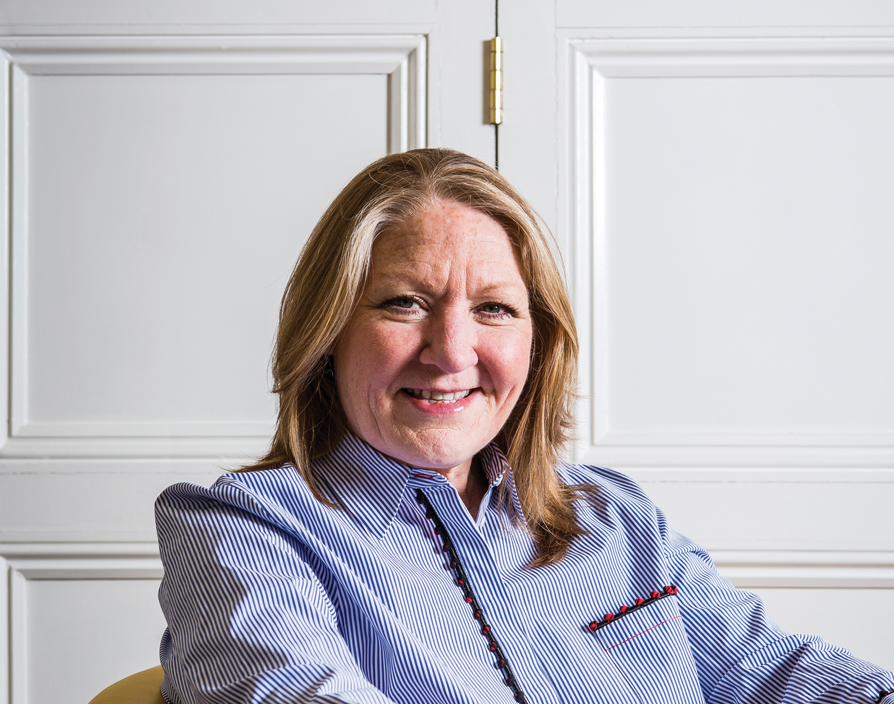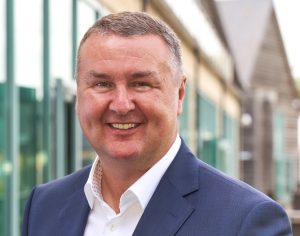Standing outside the old courthouse in Walton-on-Thames which houses Stagecoach Performing Arts’ headquarters, Sarah Kelly wipes away some hair from her face and says: “There’s a prison in the basement.” Apparently, it’s a relic from the time the building was used to serve up swift justice. Although, she admits she hasn’t taken the time to check out the dungeon yet. You can’t really blame her. After all, since stepping up as CEO for the franchise in 2013 she’s been busy modernising and strengthening the franchise for the future. “It’s been four years of really heavy lifting,” she says. And with the business’ 30th anniversary this month, Stagecoach Performing Arts is now ready to take the world by storm.
This is in no small part thanks to the work ethics her father instilled in her from early on. “My dad was a butcher and had his own chain of shops,” she says. Importantly, she didn’t just notice the benefits of owning a business yielding succulent Sunday roasts every week but she also saw how much her father pushed himself. “He was a very hard worker,” she says. “He was butchering six days a week and I used to go and help him from a very early age, making sausages. It gave me very strong work ethics. I can still remember going onto the high street when I was about 13, just knocking on each shop’s door and asking if they needed some help on Saturdays.”
But despite having seen the benefits of business ownership, Kelly almost went down another route when she went to university. “I’d always been very good at biology and wanted to go into it professionally as a doctor or a nurse,” she says. “But I can’t stand the sight of blood.” Given this particular phobia would prove a hinderance for anyone aspiring to have medicine as a profession, Kelly instead enrolled at University of Portsmouth for a bachelor degree in hotel-and-catering management. “It was a business degree that just happened to have a hotel and catering orientation to it,” she says. “You did economics, management, HR and marketing – all sorts of areas. It was a real sandwich course. No pun intended.”
During her third year she had an experience that changed her life. “I spent that year at a hotel and worked in every department,” Kelly says. “When I got to the sales and marketing team I realised that it was what I wanted to do.” She loved turning consumer insights into services and products people wanted. “I really enjoyed that part of the business,” she says. Recognising this was where her heart lay, she switched majors and ended up with a diploma from the Chartered Institute of Marketing.
Following her university studies, Kelly quickly found a job at the Forte Group, the now defunct hotel chain. “But they were massive back then,” she says. “They had about 900 hotels.” Having claimed one out of two spots in the company’s management programme before 3,500 other candidates, Kelly quickly immersed herself into the chain’s sales and marketing department. “That was when I understood that I had a flair for it,” she says. “It enabled me to be creative, apply my business understanding and my passion for understanding people. It all came together in that role.”
After two years at the Forte Group and another two years with a marketing agency, Kelly began what she describes as her “decade of fast-food” by joining Burger King in 1990 as its marketing director for Europe and the Middle East. “It was my first introduction to franchising,” she says. Burger King had launched its first UK restaurants in the 1970s but had struggled with extremely slow growth in the 1980s. However, by the time Kelly joined the business things were looking up as the franchise had just bought a chain of Wimpy restaurants. It was her job to provide the marketing for all local franchisees transforming into Burger King outlets. “Over a period of a year and a half I transitioned over 200 stores,” she says. “It was a baptism of fire. It was immensely fun.”
Her seven years working with Burger King and her subsequent three years with Wendy’s International didn’t just sharpen her marketing chops but also provided vital lessons about what makes franchises successful. “The contract has to be at the heart of the franchisee-franchisor relationship,” she says. This means franchisors have to be totally transparent about their expectations on franchisees from the get-go to avoid any future problems. One of those things is that while franchisees can have an entrepreneurial streak, they can’t be allowed to push against the walls of the model. “The reason why is because the business only works if franchisees work within the framework,” she says. As long as everyone is clear about this, there’s nothing stopping franchisees from reaching their goals.
Another important lesson during her decade of fast-food was to recognise the importance of cultural sensitivity. “If you go into Israel you can’t offer a double bacon cheeseburger because it’s not kosher,” she says. “Or if you go into the Middle East you have to make sure the meat is halal.” Recognising how vital this was, she made sure to do her research wherever these brands planned to set up shop so she could better advise her bosses about the best way forward. “That was pretty hard for these American brands to get their heads around,” she says. “They were used to just being able to replicate it in the US.” But by showing how offering things like spicy bean burgers could boost their profits, Kelly persuaded them to take cultural differences seriously.

Eric Johansson
As web editor and resident Viking, Johansson ensures Elite Franchise is filled with engaging and eclectic entrepreneurial stories. While one of our most prolific franchise writers, he has sharpened his editorial teeth by writing about entertainment and fitness. Follow him on Twitter at @EricJohanssonLJ to catch up with his stream of consciousness.

Eric Johansson
As web editor and resident Viking, Johansson ensures Elite Franchise is filled with engaging and eclectic entrepreneurial stories. While one of our most prolific franchise writers, he has sharpened his editorial teeth by writing about entertainment and fitness. Follow him on Twitter at @EricJohanssonLJ to catch up with his stream of consciousness.
































